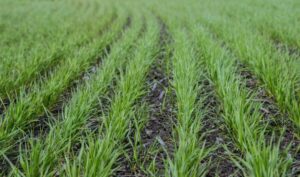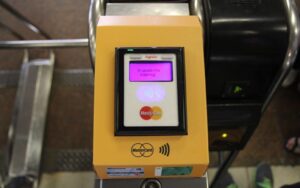
In January-July of this year, including more than five months of a full-scale war, the TAS Insurance Group paid UAH 504.11 million under concluded insurance contracts, or 22.4% less than in the same period of 2021, reported on the website of the insurer.
It is also noted that the first place in the insurer’s portfolio of payments with a share of 41.71% was taken by OSAGO, for which payments amounted to UAH 210.27 million. More than a quarter of all payments, or 27.44%, fell on CASCO – UAH 34 million.
The third position in the company’s payout portfolio with a share of 13.49% was occupied by VHI – UAH 67.99 million.
Not much less in the total amount of payments was the share of the “Green Card” – 12.79%, or UAH 64.47 million.
At the same time, under property insurance agreements, SG TAS paid UAH 4.99 million for the reporting period, which is 12.8% more than in seven months of last year.
Under other insurance contracts, the company paid UAH 18.05 million in compensation, exceeding the figure for January-July last year by 15.1%.

Cardboard and Paper Company LLC (Lviv), a major Ukrainian manufacturer of cardboard sleeves and sanitary and hygienic products, increased production by 44.7% in January-July compared to the same period in 2021 – up to 616, UAH 41 million
According to the statistics of the UkrPapir Association, provided to the Interfax-Ukraine agency, in this way the company slightly accelerated the growth rate of this indicator compared to the same period last year (according to the results of the first half of the year, it was 42%).
In pack terms, the company increased the output of base paper for sanitary products by 10.8% to 4.14 thousand tons, while increasing the output of toilet paper in rolls by 46.6% to 2.35 million pieces.
The output of cardboard products decreased slightly (by 1%) – to 15.31 thousand tons.
As reported with reference to UkrPapir statistics, the factory continued to work all months from the beginning of the year, reducing the production of paper and cardboard in March (compared to March 2021), but in April it already switched to positive dynamics, which it maintained in the following months.
Cardboard and Paper Company (until 2011 – Lvivkartonoplast) produces products and semi-finished products from recycled cardboard (cardboard sheets, corners, sleeves), cellulose and recycled waste paper (toilet paper, towels, napkins (TM Papero).
In 2021, the company produced products worth UAH 782.7 million, which is 46.7% more than a year earlier.

A major Ukrainian manufacturer of corrugated cardboard – Poninkovskaya Cardboard and Paper Factory-Ukraine (“PKBF-Ukraine”, Khmelnitsky region) in January-July produced products worth UAH 1 billion 238 million, which is 7.7% more than in the same period in 2021.
According to the statistics of the UkrPapir association provided to the Interfax-Ukraine agency, in physical terms, the factory reduced the production of containerboard (including corrugating paper) by 22% – to 40.19 thousand tons, and by 19% the production of corrugated boxes from it – up to 36.78 million sq. m.
At the same time, paper output increased to 327 tons from 64 tons a year earlier.
At the same time, in July, the production of corrugated packaging decreased by 5% compared to July 2021, to 6.8 million square meters. m, paper and cardboard – by 2.7%, up to 7.9 thousand tons.
The Ponikovskaya Factory (formerly the Ponikovsky Cardboard and Paper Mill), once the largest manufacturer of school notebooks, currently has one main production – paper and cardboard, mainly produces corrugated packaging, as well as wrapping, waste paper.
The factory is part of the United Cardboard Company-Ukraine (UCC, Lutsk), whose production assets also include Lutsk KBF-Ukraine (Volyn region), which reduced the production of cardboard by 22.6% in January-July – to 27.8 thousand tons.
As reported with reference to data collected by the association from industry companies, in January-July, taking into account the fact that a number of enterprises in the industry were either destroyed or damaged or located in the occupied territory, the production of paper and cardboard decreased by 46% – to 286.6 thousand tons, corrugated packaging – by 42.8%, up to 242.4 million square meters. m.

The Agroliga group of companies (Kharkiv region) in January-June 2022 reduced its net profit by 3.2 times compared to the first half of 2021 – to EUR 0.81 million, revenue decreased by 25% – to EUR 27.2 million.
According to the condensed report of its holding company Agroliga Group PLC (Cyprus) on the Warsaw Stock Exchange, Agroliga’s gross profit for the specified period decreased by 6% – to EUR3.32 million, operating profit – by 17.7%, to EUR1.74 million .
As of June 30, 2022, the assets of Agroliga increased by 10% compared to the same date in 2021 – up to EUR74.6 million, current debt obligations – by 38.5%, up to EUR30.55 million, long-term liabilities – by 4 .8%, up to EUR6.5 million
At the same time, the report does not contain any information about the activities of the agricultural holding in the conditions of the military invasion of the Russian Federation in the Kharkiv region. Earlier, in March, “Agroliga” reported that part of its assets were occupied by Russian troops, because of which economic activity in the places of hostilities was paralyzed.
In April, the agricultural holding clarified that it had not started sowing work on the fields occupied by Russia. At the same time, in the territory controlled by Ukraine, the sowing campaign is carried out in accordance with a previously drawn up plan. The oil extraction plant of Agroliga and the power plant remained in the controlled territory and are operating normally.
Before the war, the Agroliga Group included the following agricultural producers in the Kharkiv region: Agroliga LLC (Kamenka village), Mechnikovo LLC (Novoegorovka village), Vostokagrokontrakt LLC (Nikolaevka village), Mayak LLC (village Berezovka), Agrokom Novaya Vodolaga LLC (Novaya Vodolaga township), AGL Enerdgy LTD. (town Novaya Vodolaga) with a total land bank of 10 thousand hectares.
In addition, it included Liga-A LLC (Kharkiv), acting as a trading house, Agroliga Polska – a trading company registered in Poland, Agroliga Group PLC holding company (Cyprus), Agroliga Group of Companies PLC holding company (Kharkiv) and specializing in sales and trade services for other companies of the Agroliga-Trade LLC group.
GC “Agroliga” has been working on the Ukrainian market of agricultural products since 1992. He is engaged in the cultivation of grain crops, processing of sunflower seeds and dairy farming.
The capacity of the oil plant, which operates according to the pressing technology, is 42 thousand tons per year, the oil plant, which operates according to the extraction technology, is 110 thousand tons of sunflower per year.
The majority shareholders of the group are Alexander Berdnik with a share of 41.66%, Irina Poplavskaya – 41.66%.

The State PrivatBank (Kyiv) and the MasterCard international payment system have launched contactless fare payment at all metro stations in Dnipro, the bank’s press service reported on Thursday.
“In August 2022, as part of the program with MasterCard, the bank installed turnstiles with contactless payment technology with a bank card at four more stations of the Dniprovsky metro – Metrostroiteley, Prospekt Svobody, Metallurgov and Zavodskaya. Now you can pay for travel with a card or smartphone at all metro stations,” the statement said.
For two years of operation of such turnstiles at the stations “Vokzalnaya” and “Pokrovskaya” in the Dnieper, more than 420 thousand trips were paid contactlessly.
The press service noted that the Dnipro metro has become the second metro in Ukraine after the Kyiv one, where you can pay for travel with a card or an NFC device right at the turnstile.

The company Rolls-Royce Power Systems AG and its employees will finance the restoration of the dispensary destroyed by shelling of the Russian army in the village of Khukhra (Sumy region), Deputy Head of the Office of the President (OP) Kyrylo Tymoshenko said on Thursday.
According to him, the cost of the project is UAH 13 million. Rolls-Royce employees have already collected part of the funds for future works, the rest will be provided by the company itself.
“A plot of land has been allocated for a new modern dispensary. The procedure for obtaining technical conditions for energy and other permitting documents is ongoing, in accordance with current building regulations and rules,” Tymoshenko said in her Telegram channel.
He also noted that a tender for construction and assembly work will be announced in September, and the dispensary itself is scheduled to open by the end of 2022.
The project is implemented in partnership with the Ministry of Health of Ukraine, the Sumy Regional Military Administration, the Kyiv School of Economics, and the Chernechshyn Territorial Community.